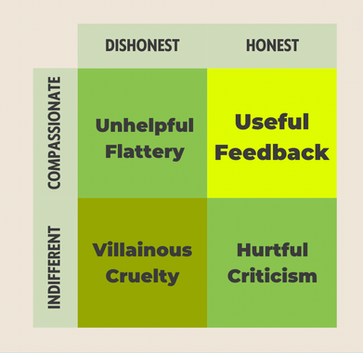Talking Big Ideas.
“We all need people who will give us feedback. That’s how we improve.”
~ Bill Gates
Sir Karl Popper stepped onto the stage.
It was the summer of 1953. Cambridge University invited him to give a speech on modern philosophy. He chose to focus on the question, how can we distinguish between science and pseudo-science?
Popper argued that science, despite popular belief, is not just about observations and experiments. Nor is it about predicting the future based on the past. Or declaring final truths.
Science is about making guesses. And then trying to poke holes in them.
He titled his lecture Science: Conjectures and Refutations. Scientists, he said, don’t avoid criticism. They seek it out. They’re eager to learn from mistakes. And they change their minds whenever new evidence calls for it. This is the hallmark of scientific thinking. And the foundation for progress.
It’s how ideas advance – and most other things too, from technology and biology to skill development:
Test → Get feedback → Iterate
Quality feedback is essential to growth.
Yet when it comes to public speaking, there are two types of ineffective feedback I hear all the time. I call them Unhelpful Flattery and Hurtful Criticism.
Unhelpful Flattery is the default feedback people give to their colleagues. It’s all positive. And vague. “You did great! I really liked it.” There’s no substance to comments like this. No guidance on how the speaker can improve.
By contrast, Hurtful Criticism is the default feedback people give to themselves. It’s all negative. And often specific. “I hate the sound of my voice! And I always ramble too much and use tons of fillers.”
I help my clients overcome these default settings. To treat themselves with the same compassion and respect as they treat their colleagues. The key is learning how to give feedback that is useful.
Useful Feedback has two core ingredients: honesty and compassion.

Honesty is foundational to progress. Without honest feedback, we’d never know what to improve.
Compassion is important because, as Dr. Monique Valcour says, “feedback should increase, not drain” the speaker’s motivation to grow. Feedback without compassion can become hurtful criticism that kills motivation. Especially when the recipient feels insecure or vulnerable.
For instance, imagine for a moment you’re at a conference. Your most important event of the year.
You walk out of the bathroom and enter a crowded dinner party full of VIPs. There’s a long stream of toilet paper stuck to your shoe. You have no idea, of course, but a colleague notices. Which approach would you prefer she take?
- Unhelpful Flattery: Smile at you but say nothing. Avoid the uncomfortable confrontation. Pretend everything is fine as you walk into the crowd.
- Hurtful Criticism: Shout out so everyone can hear, “Whoa, you got toilet paper stuck to your shoe!”
- Villainous Cruelty: Sit back and take pleasure in watching the embarrassment unfold.
- Useful Feedback: Pull you aside right away. Quietly point out the toilet paper.
Notice that Useful Feedback is respectful and specific. When it comes to public speaking, I encourage you to offer feedback that answers these questions:
What’s one specific thing I enjoyed about the talk?
What’s one specific way the speaker can improve?
Start with positive feedback. This puts the speaker into a frame of mind more open to receiving critical or growth-oriented feedback.
But beware of false praise. Executive coach Ed Batista explains in HBR’s Guide to Delivering Effective Feedback how false praise is destructive. If it feels like we’re being insincere with our feedback, we lose credibility. Our audience may not listen to or believe what we say.
Positive feedback connected to values the speaker holds dear has a big impact. If you know the speaker’s values – perhaps you’ve seen their Mountaintop Card or you’re familiar with the vision of the company or project the speaker’s working on – connect your feedback to them.
To be most effective, the ratio of positive to growth-oriented feedback should vary depending on the speaker’s comfort level.
Professors Stacey Finkelstein and Ayelet Fishbach published research that shows the less confident we are, the more positive feedback we need to make progress. Beginners crave cheerleaders. Experts, on the other hand, often want feedback that cuts to the chase. When I’m working with a longtime client who is highly skilled, I may skip the positives and just focus on how to improve.
If you listen close enough, every talk has a teachable moment. Your role, as a provider of feedback, is to find it and share.
***
![]() IDEA
IDEA
Useful feedback is essential to growth.
Listen to a short presentation today. It can be a comedian you enjoy, an entrepreneur, a TED talk, a pastor, a clip of a friend, etc. Ask yourself as you listen:
- What’s one specific thing I enjoy about this talk?
- What’s one specific way the speaker can improve?
***
Kim Scott encouraged me to think deeply about feedback.
She’s a Silicon Valley executive and expert on helping people grow. I had the opportunity to speak with her after she delivered a keynote a few years ago. She looked me in the eyes and asked me how she did. I got nervous and blurted out, “you did great!”
She smiled and said, “It’s important to say what you really think.”
Scott’s Radical Candor graph for managers inspired my Useful Feedback graph for coaching speakers.
If you find this useful, please subscribe to our free weekly newsletter.





